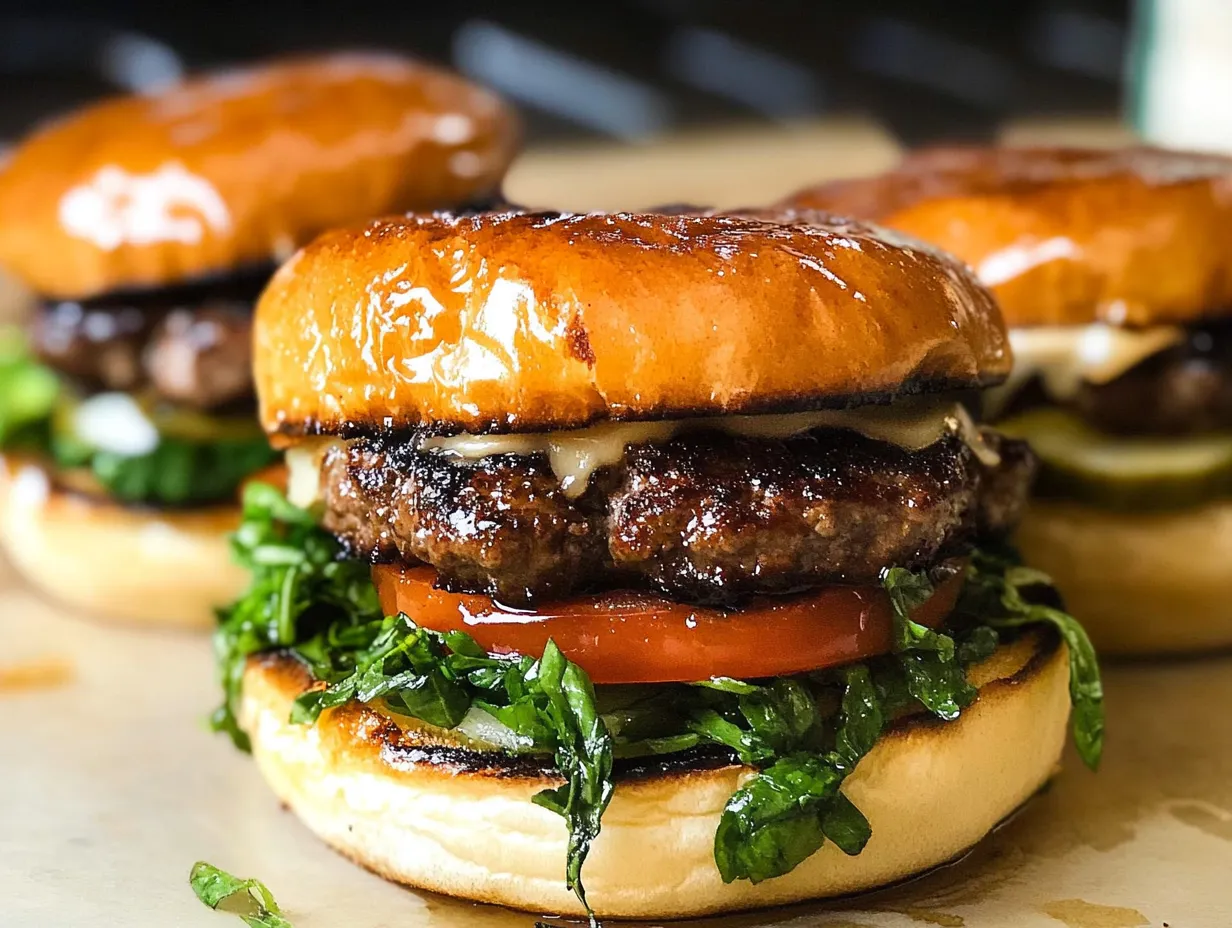If you’ve ever heard the buzz about Wagyu beef and wondered if a Wagyu burger truly tastes different from a regular beef burger, the short answer is: YES! But what makes it different? Wagyu beef is famous for its intense marbling, buttery texture, and rich umami flavor, all of which make a Wagyu burger juicier, more flavorful, and incredibly tender compared to a standard burger.
Let’s break down exactly why Wagyu burgers taste so unique and whether they’re worth the hype!
How Does a Wagyu Burger Taste?
A Wagyu burger offers a richer, more luxurious experience than a regular beef burger. Here’s what makes it stand out:
1. Juicier & More Tender
Wagyu beef is packed with intramuscular fat (marbling) that melts while cooking, making the burger extremely juicy and tender. Even when cooked to medium or medium-well, a Wagyu burger remains moist and flavorful.
2. Rich, Buttery Flavor
The fat in Wagyu beef has a lower melting point, which gives it a buttery mouthfeel and deep, umami flavor that lingers on your palate.
3. More Umami & Beefy Taste
Compared to regular ground beef, Wagyu has a more complex and savory flavor, thanks to its unique fat composition. It tastes slightly sweet, incredibly rich, and deeply beefy.
4. Less Chew, More Melt-in-Your-Mouth Texture
Regular burgers can be chewy or dry if overcooked, but a Wagyu burger has a tender, almost melt-in-your-mouth bite due to its fine marbling.
Wagyu Burger vs. Regular Beef Burger: What’s the Difference?
| Feature | Wagyu Burger | Regular Beef Burger (80/20 blend) |
|---|---|---|
| Flavor | Rich, buttery, and umami-packed | Classic beefy flavor |
| Juiciness | Extremely juicy due to high marbling | Juicy but can dry out if overcooked |
| Texture | Melt-in-your-mouth, ultra-tender | Firm and slightly chewy |
| Fat Content | Higher, with fine marbling throughout | Moderate fat, more concentrated in some areas |
| Cooking Needs | Cooks faster due to fat content | Requires careful cooking to avoid dryness |
| Price | More expensive | More affordable |
🔥 Verdict: If you want luxury in burger form, Wagyu is worth the splurge! If you prefer a more traditional, hearty beef flavor, a high-quality regular beef burger is still a great choice.
Are Wagyu Burgers Worth It?
✔ YES if…
- You love ultra-juicy, rich, and buttery flavors.
- You want a next-level, gourmet burger experience.
- You don’t mind paying a little extra for premium quality.
❌ Maybe Not if…
- You prefer a leaner, more classic beefy burger.
- You’re on a budget (Wagyu burgers cost more).
- You like a firm, chewy texture rather than melt-in-your-mouth.
How to Cook a Wagyu Burger for Maximum Flavor
Since Wagyu has more fat, you need to cook it differently than a regular burger.
🔥 1. Cook It Over Medium-Low Heat
Wagyu fat melts faster, so cooking over medium-low heat prevents flare-ups and keeps the burger juicy.
🍔 2. Avoid Overcooking
- Medium-rare (130°F – 135°F) is the sweet spot.
- Cooking past medium (140°F) can cause the fat to escape, making it drier.
🧈 3. Skip Extra Butter or Oil
The burger already has plenty of fat, so there’s no need for extra butter or oil.
🧂 4. Keep Seasoning Simple
A little salt and pepper is enough—let the natural Wagyu flavor shine!
🥖 5. Use a Simple Bun
Go for a brioche or potato bun that complements the burger’s richness without overpowering it.
Final Verdict: Do Wagyu Burgers Taste Different?
Absolutely! Wagyu burgers are richer, juicier, and more buttery than regular burgers. The intense marbling gives them a luxurious, melt-in-your-mouth texture that regular ground beef just can’t match. If you’re looking for a next-level burger experience, Wagyu is 100% worth trying!

